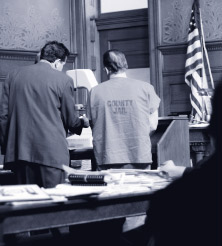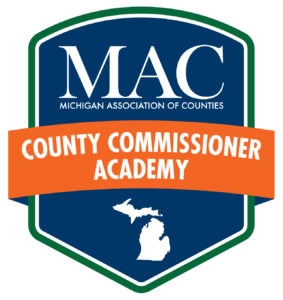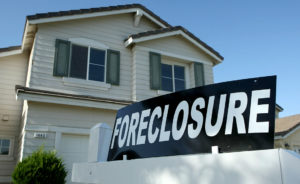State releases new health orders on public gatherings, mask use
 With COVID-19 hospitalizations and deaths rising, the Michigan Department of Health and Human Services (MDHHS) released new, more restrictive health orders on Thursday night on public activities and mask usage.
With COVID-19 hospitalizations and deaths rising, the Michigan Department of Health and Human Services (MDHHS) released new, more restrictive health orders on Thursday night on public activities and mask usage.
Among the key changes in the new orders:
- Restaurants and bars must seat no more than six people at a table
- All dine-in establishments must keep customers’ names and phone numbers for contact-tracing purposes
- Face masks are required for everyone at indoor gatherings
- Indoor gatherings are capped at 50 people in venues with no fixed seating
- Outdoor gatherings at residences are limited to 100 people
- Indoor gatherings at residences are limited to 10 people
The department also ordered that the region around Traverse City has been pulled back to Phase 4 of the state’s Safe Start system, bringing it in line with restrictions in the rest of Michigan.
The orders are effective immediately, except for the contact tracing provision on eateries, which begins Nov. 2.
- NEW: MDHHS Health Order on gatherings and face masks (10/29)
- NEW: MDHHS Fact Sheet on gatherings order (10/29)
- NEW: MDHHS Guidance on gatherings order (10/29)
For the latest information on COVID-19 response, visit MAC’s Resources Page.
Final state approval given on Indigency Standard 5
 As expected, the state Department of Licensing and Regulatory affairs (LARA) has approved the Michigan Indigent Defense Commission’s Standard 5, which requires independence of the judiciary (“to ensure the court is free from political and budgetary influence when making indigency determinations”) pursuant to the MIDC Act. The full final standard can be found here.
As expected, the state Department of Licensing and Regulatory affairs (LARA) has approved the Michigan Indigent Defense Commission’s Standard 5, which requires independence of the judiciary (“to ensure the court is free from political and budgetary influence when making indigency determinations”) pursuant to the MIDC Act. The full final standard can be found here.
The MIDC notified funding units of the following:
“As required by MCL 780.993(3), indigent criminal defense systems must submit a plan for compliance with minimum Standard 5 “no later than 180 days after” approval by the department. A plan for compliance with Standard 5 will be due to the MIDC by April 27, 2021. Submission of a plan for compliance with Standard 5 will correspond with the annual compliance planning cycle for all approved standards. Your Regional Managers will be in touch to support planning efforts. Please check our website regularly for updates and materials related to compliance planning.”
MAC members have expressed concern that the state will not continue to fully fund current and future standards. MAC expects compliance with Standard 5 to further add to costs and will continue our efforts to fully fund all approved standards. Additionally, the law clearly outlines that a county’s duty of compliance with approved standards is contingent upon receipt of a grant in the amount sufficient to cover the approved standards within the system’s plan.
For questions, contact Meghann Keit at keit@micounties.org.
Treasury releases FY21 actuarial assumptions
 The Michigan Department of Treasury is required, under PA 202 of 2007, to establish uniform actuarial assumptions for retirement systems on investment returns, mortality rates and health care inflation each year. Local units of government with a defined benefit system are required to use these assumptions in their annual report to the department. These assumptions are different that the assumptions used in your local audited financial statements. The assumptions issued by Treasury are meant to serve as a comparison of systems across local government for public and government evaluation purposes, and not as the measurement to determine if the local unit is in a funded or unfunded status.
The Michigan Department of Treasury is required, under PA 202 of 2007, to establish uniform actuarial assumptions for retirement systems on investment returns, mortality rates and health care inflation each year. Local units of government with a defined benefit system are required to use these assumptions in their annual report to the department. These assumptions are different that the assumptions used in your local audited financial statements. The assumptions issued by Treasury are meant to serve as a comparison of systems across local government for public and government evaluation purposes, and not as the measurement to determine if the local unit is in a funded or unfunded status.
A local government funded status is determined by their own assumptions in their local audited financial statement.
For more information, contact Deena Bosworth at Bosworth@micounties.org.
Finance report: Use counties’ regional position to leverage reforms
 Michigan should give counties the option to create a new tax and serve as a hub for delivery of more local services, says a new report.
Michigan should give counties the option to create a new tax and serve as a hub for delivery of more local services, says a new report.
“Towards Fiscally Healthy Michigan Local Governments,” an analysis by the Lincoln Institute of Land Policy, details what most county leaders already know – that the state of Michigan has long starved counties and other local units of necessary revenue and local public services are suffering as a consequence, to the detriment of Michigan.
The analysis’ authors argue this is not sustainable and that the best response is to rely in part on counties’ unique position to deliver services and collect revenue on a regional basis.
“(T)he state suffers from government fragmentation, which results in inefficiencies: with every county, city, village, township, and special district responsible for providing certain services, duplications among overlying governments may arise. Cost-saving measures implemented by many municipalities can only go so far and opportunities for collaboration may be overlooked,” the authors explain.
“One of two approaches should follow: (1) reorganize the local government’s service delivery model to allow counties to provide more services; or (2) create a system for the county to distribute new revenues to all local units of government within the county, with the county retaining a small portion of the revenues to cover administrative costs and to help pay for other county-provided services.”
“The report has several interesting suggestions and it is valuable in that it will help continue to raise the local funding crisis to the attention of state lawmakers,” said Deena Bosworth, MAC’s director of governmental affairs.
Virtual forum to highlight wind energy planning and siting issues
 The National Renewable Energy Laboratory (NREL) is hosting a Wind Energy Planning & Siting Information Workshop on Nov. 17 and Nov. 19, noon to 2:30 p.m. Eastern time, for local officials and planners to share experiences while learning more about wind energy development in communities around the country.
The National Renewable Energy Laboratory (NREL) is hosting a Wind Energy Planning & Siting Information Workshop on Nov. 17 and Nov. 19, noon to 2:30 p.m. Eastern time, for local officials and planners to share experiences while learning more about wind energy development in communities around the country.
What to expect:
- Participants will share first-hand experiences and discuss common practices pertaining to wind energy development in their communities.
- NREL technical experts and national and local experts will facilitate a discussion identifying potential pathways to reduce uncertainty and inform communities about wind energy impacts.
To attend, please RSVP to Chloe Constant (chloe.constant@nrel.gov) by Nov. 4.
 Staff picks
Staff picks
- Government consolidation: A historically unpopular solution to local fiscal strain (Citizens Research Council of Michigan
- In national debate over policing changes, policymakers can look to corrections reforms for guidance (Pew Trusts)
- States craft remote work policies that work (National Conference of State Legislatures)
- 100-year-old voter shares advice ahead of election, names favorite president in her lifetime (USA Today)
House GOP releases county-oriented COVID plan, bill
 A new plan and legislation from the House Republican Caucus would require counties to adhere to state health rules on COVID-19, unless they could meet five criteria to adopt less restrictive rules.
A new plan and legislation from the House Republican Caucus would require counties to adhere to state health rules on COVID-19, unless they could meet five criteria to adopt less restrictive rules.
The plan incorporated in House Bill 6314, by Rep. Ben Frederick (R-Shiawassee), says counties must follow Michigan Department of Health and Human Services (MDHHS) emergency orders, unless certain standards are met. If all five are met, the county health officer may issue directives that are equal to or less restrictive than the state order.
The criteria that must be met include, within a 14-day period:
- Confirmed cases at or below 55 per 1 million
- Percentage of positive tests below 5%
- Hospitalization rates have not increased 25%
Additionally, health facilities in the served areas must have a “surge capacity of at least 20 percent in admissions or patient transfers,” and must also have at least a 14-day supply of PPE available. The service area must be able to conduct 15 tests per 10,000 residents per day and receive results within three days.
Many counties participate in multi-county health districts. For those who do, the calculations in the criteria mentioned above would have to be met by each county individually.
Under the bill, if a county no longer meets two or more of the requirements during a seven-day period, the county health officer order is no longer valid, and the county reverts back to the emergency order issued by MDHHS. The county health officer can issue subsequent orders once the county meets the criteria again previously mentioned.
MAC has not taken a position yet on this bill but will be reviewing it with our internal committees in upcoming days. Additionally, MAC is seeking input and guidance from local public health experts.
For questions, contact Meghann Keit at keit@micounties.org.
Commission sets ‘Indigency Standard’ at October session
 The Michigan Indigent Defense Commission revised the “Indigency Standard” this week at a meeting after receiving public comment in September. The final standard sets indigency, partial indigency and contribution standards for local systems, as statutorily required. The full text can be found here.
The Michigan Indigent Defense Commission revised the “Indigency Standard” this week at a meeting after receiving public comment in September. The final standard sets indigency, partial indigency and contribution standards for local systems, as statutorily required. The full text can be found here.
The standard now heads to the Department of Licensing and Regulatory Affairs, which has final approval of all MIDC-set standards.
The commission also released its October 2020 update, which includes important information and resources for fourth quarter reporting.
Comments can be submitted to LARA-MIDC-info@michigan.gov. All comments will be posted on the MIDC’s website.
The MIDC is also anticipating approval of Standard 5 in upcoming months. Standard 5 sets standards for an indigent criminal defense services to be independent of the judiciary. If approved, the next round of county plan and cost analyses will include this new standard.
The Legislature and governor funded MIDC grants at $117.5 million in FY21. It is expected that Standard 5 will create additional costs in the upcoming fiscal year. MAC stands ready to continue to advocate for full funding by the state, as constitutionally required, as more standards are approved.
For more information on this issue, contact Meghann Keit at keit@micounties.org.
New COVID requirements for nursing homes are now law
 Several requirements pertaining to the state’s COVID-19 nursing home policy are now law after Gov. Gretchen Whitmer signed Senate Bill 1094 this week.
Several requirements pertaining to the state’s COVID-19 nursing home policy are now law after Gov. Gretchen Whitmer signed Senate Bill 1094 this week.
The bill, by Sen. Pete Lucido (R-Macomb), also requires the Michigan Department of Health and Human Services (MDHHS) to adopt statewide policy by Nov. 15.
Additionally, the department must create a process for the creation of Care and Recovery Centers (CRCs) within nursing homes for those residents who test positive for COVID, similar to what the state moved toward after the nursing home task force recommendations were released.
Under the law, an individual cannot be admitted to a nursing home if they are positive for COVID-19, receiving treatment at a hospital and have less than 72 hours in the isolation period. Starting Nov. 15, the individual cannot be admitted to a nursing home if the person tests positive for COVID-19, but there are certain exemptions.
For questions, contact Meghann Keit at keit@micounties.org.
MDHHS expands Behavioral and Opioid Health Home initiatives
 The Michigan Department of Health and Human Services (MDHHS) says it will expand the Behavioral Health Home (BHH) and Opioid Health Home (OHH) initiatives “in select Michigan counties to provide intensive care management and care coordination services for Medicaid beneficiaries with a serious mental illness (SMI) or serious emotional disturbance (SED), and an opioid use disorder (OUD), respectively.
The Michigan Department of Health and Human Services (MDHHS) says it will expand the Behavioral Health Home (BHH) and Opioid Health Home (OHH) initiatives “in select Michigan counties to provide intensive care management and care coordination services for Medicaid beneficiaries with a serious mental illness (SMI) or serious emotional disturbance (SED), and an opioid use disorder (OUD), respectively.
“The Centers for Medicare & Medicaid Services (CMS) recently approved Michigan’s State Plan Amendments (SPAs) to expand its Behavioral and Opioid Health Home initiatives. The expanded SPAs will allow thousands of Medicaid beneficiaries meeting the eligibility criteria to receive BHH or OHH services in the following Prepaid Inpatient Health Plan (PIHP) regions:
BHH
- PIHP Region 1 (counties in the Upper Peninsula)
- PIHP Region 2 (21 northern-most counties of the Lower Peninsula)
- PIHP Region 8 (Oakland County)
OHH
- PIHP Region 1 (counties in the Upper Peninsula)
- PIHP Region 2 (21 northern-most counties of the Lower Peninsula)
- PIHP Region 4 (specifically Calhoun and Kalamazoo Counties)
- PIHP Region 9 (Macomb County)
“In Michigan, half of Medicaid beneficiaries have an untreated mental illness, and more than two-thirds have an untreated substance use disorder. Health Homes are a proven model to increase access to coordinated and integrated care, which is especially important during the COVID-19 pandemic.”
For more information, visit Michigan.gov/IHH. For BHH-specific information, including eligibility and available resources, visit Michigan.gov/BHH; for OHH-specific information, including eligibility and available resources, visit Michigan.gov/OHH.
 Staff picks
Staff picks
- Information on flu shots in Michigan (University of Michigan Medicine)
- Michigan FY21 Revenue Sharing Estimates for Counties (Michigan Senate Fiscal Agency)
- CDC expands definition of ‘close contacts,’ after study suggests COVID_19 can be passed in brief interactions (Statnews.com)
- These are the words that were added to the dictionary the year you were born (Thrillist.com)
Registration opens for 2020 New Commissioner Schools
 To aid newly elected commissioners, and promote continuing education among veteran ones, MAC again is partnering with MSU Extension (MSUE) for the biennial New Commissioner Schools.
To aid newly elected commissioners, and promote continuing education among veteran ones, MAC again is partnering with MSU Extension (MSUE) for the biennial New Commissioner Schools.
Registration is now open for this year’s series, which will be the first all-digital series in the event’s history.
“The value of these sessions for commissioners, new or not, is tremendous,” said Stephan Currie, MAC executive director. “We work closely with MSUE on content to ensure its direct application to the challenges and opportunities that commissioners encounter every day.”
With the digital format, sessions will open Nov. 12 and not conclude until mid-December, allowing attendees a great deal of flexibility on dates and times. In addition, registrants will have 24/7 access to previously released sessions – what MSUE calls “self-paced, asynchronous learning.”
MAC’s Currie will offer taped remarks to registrants, and MAC is sponsoring the segment on the Open Meetings Act, a particularly salient issue right now, led by Matt Nordfjord of the firm of Cohl, Stoker and Toskey.
 Full details on the schedule of sessions can be found here.
Full details on the schedule of sessions can be found here.
Registration for the event, which carries a $95 fee, starts here.
Also, commissioners and commissioners-elect earn credits in MAC’s County Commissioner Academy for their participation in the New Commissioner Schools.
CCA operates on a two-year sequence, starting after an election. Participants earn continuing education “hours” by attending designated events and workshops. “Certification” is offered at two different levels: “Certified” is reached at 10 hours over a two-year cycle, while “Advanced” is reached with 20 hours over a four-year period. “Hours” will not be limited to MAC events. Commissioners can earn via attendance at MSUE-sponsored events or even sessions hosted by the Treasury Department or elsewhere.
A New Commissioner School equates to 5 credit hours, for example.
“We strongly encourage all members to consider these sessions,” Currie said, “and we look forward to seeing everyone online.”
Changes to Open Meetings Act allow for expanded remote sessions
 Changes to the Open Meetings Act to allow county boards, under any circumstance, to continue to conduct virtual sessions through the end of the year are the governor’s signature away from being law, a signature that is expected late Friday afternoon
Changes to the Open Meetings Act to allow county boards, under any circumstance, to continue to conduct virtual sessions through the end of the year are the governor’s signature away from being law, a signature that is expected late Friday afternoon
Senate Bill 1108 also allows for retroactive authorization for virtual sessions dating back to March 18, 2020, to ensure the validity of board actions taken during the pandemic. This blanket authorization expires on Jan. 1, 2021, but the bill will still allow for virtual participation in meetings in such circumstances as a commissioner’s medical condition and when the county or the state is operating in a state of emergency.
Legislation cleared the Senate and House earlier this week by bipartisan majorities. (MAC thanks members who participated in our advocacy campaign to the House this week for this result. Your voices make a difference in Lansing.) The bill was part of a huge wave of legislation passed this week that was sent to Gov. Gretchen Whitmer for her signature Friday.
The legislation allows county boards to meet electronically, in whole or in part, as follows:
March 18, 2020-Jan. 1, 2021, for “any circumstance, including but not limited to,” military leave, state or local emergency declaration, or for a medical condition”
Jan. 1, 2021-Dec. 31, 2021, for “only those circumstances requiring accommodation of members absent due to military duty, a medical condition, or a statewide or local state of emergency”
After Dec 31, 2021, only for reason of military duty
If a member of the public body is participating remotely due to military duty or a medical condition, the accommodation only applies to that individual and the other members must by physically present at the meeting.
Each member of the public body that is meeting remotely must announce the county, city, township or village and state from which the member is attending remotely, and it must be included in the meeting minutes.
Quick passage of this legislation was a top priority for MAC in the wake of the litigation against the 1945 law that the governor had used for her Executive Orders during the pandemic.
For more information on OMA options, view the latest episode of MAC’s Podcast 83, sponsored by DTE, which featured Matt Nordfjord of the firm of Cohl, Stoker and Toskey answering questions on the law.
Legislature adopts COVID care immunity, policy bills
 During a Tuesday session that stretched into Wednesday morning, the Legislature revised laws to codify various orders that Gov. Gretchen Whitmer had made during the pandemic, but which had been nullified when the Michigan Supreme Court said the 1945 law underpinning the orders was unconstitutional. Among actions taken was on immunity for nursing facilities, as well as implementation of the COVID-19 nursing home task force recommendations.
During a Tuesday session that stretched into Wednesday morning, the Legislature revised laws to codify various orders that Gov. Gretchen Whitmer had made during the pandemic, but which had been nullified when the Michigan Supreme Court said the 1945 law underpinning the orders was unconstitutional. Among actions taken was on immunity for nursing facilities, as well as implementation of the COVID-19 nursing home task force recommendations.
House Bill 6159, by Rep. Roger Hauck (R-Isabella), would provide immunity protections for medical care facilities during COVID-19 response efforts from March 29 through July 14, 2020. The final text of this bill can be found here. The bill now heads to the governor for review.
Senate Bill 1094, by Sen. Peter Lucido (R-Macomb), was also passed by both chambers. It adds many requirements for the state Department of Health and Human Services (MDHHS), including adoption of policy as recommended by the nursing home COVID-19 Task Force and to identify labs that will process COVID tests from nursing homes by Nov. 15.
MDHHS must create a process for the creation of care and recovery centers (CRCs) within nursing homes for those residents who test positive for COVID “who have not met the criteria for the discontinuation of transmission-based precautions from the federal Centers for Disease Control and Prevention.”
A home wishing to operate a CRC would apply to DHHS and must adhere to several requirements. An individual cannot be admitted to a nursing home if they are positive for COVID-19, receiving treatment at a hospital and have fewer than 72 hours in the isolation period. Starting Nov. 15, the individual cannot be admitted to a nursing home if the person tests positive for COVID-19 unless they have since recovered, the nursing home is a CRC or the nursing home can meet the requirements under (1)(e). A nursing facility can continue to admit and care for a COVID-positive resident, through Dec. 31, 2020, under certain exemptions.
The full text of the bill, which is now before the governor, can be found here.
Lastly, House Bill 6137, by Rep. Leslie Love (D-Wayne) was passed by the House regarding reporting requirement for MDHHS and nursing home data. The full list requirements can be found in the bill here.
For more information on this issue, contact Meghann Keit at keit@micounties.org.
Jail Task Force-inspired bills advance in Senate
 Legislation that will reduce burdens on county jails and improve the efficiency and effectiveness of the state’s criminal justice system were voted out of the Senate Judiciary and Public Safety Committee this week. MAC supports these reforms.
Legislation that will reduce burdens on county jails and improve the efficiency and effectiveness of the state’s criminal justice system were voted out of the Senate Judiciary and Public Safety Committee this week. MAC supports these reforms.
House Bills 5844 and 5854-57 remove mandatory minimum jail sentences for certain offenses. Removal of such sentences would mean a court could impose any term of imprisonment, up to the statutory maximum specified for an offense. For certain driving while intoxicated offenses, the legislation prohibits a judge from waiving the minimum, unless the offender successfully completes a specialty court program, such as a drug treatment or sobriety court.
Additionally, bills removing driver’s licenses sanctions for non-related driving offenses were also passed by the House. HBs 5846-5852 would eliminate various license suspensions unrelated to dangerous driving, such as failure to appear for court or failing to pay child support.
The Senate committee also voted out SB 1152, by Sen. Erika Geiss (D-Wayne), that requires jails to provide certain accommodations to an incarcerated woman who is pregnant. The bill requires jails to provide pregnancy tests, a holding place for breastmilk, and access to an OB-GYN, nurse midwife, or doula services.
At this time, MAC opposes the Geiss bill due to unknown costs related to some of the previously mentioned services and liability connected to the requirements. See the full fiscal analysis for further cost impact to counties.
MAC’s opposition testimony can be found here.
For questions, contact Meghann Keit at keit@micounties.org.
State again seeks input on five-year Health IT Roadmap for Michigan
 The Michigan Health Information Technology Commission has begun developing a Statewide Five-Year Health IT Roadmap. This Roadmap will be a guide for future planning, investments and governance of health information technology (HIT) and health information exchange (HIE) for the state of Michigan.
The Michigan Health Information Technology Commission has begun developing a Statewide Five-Year Health IT Roadmap. This Roadmap will be a guide for future planning, investments and governance of health information technology (HIT) and health information exchange (HIE) for the state of Michigan.
The next step is to gather input from stakeholders across the health and human services ecosystems in Michigan on current and future HIT and HIE needs, capabilities and gaps. Please ensure your input is included by participating in the survey and sharing your organization’s insights relevant to health information technology and health information exchange.
The appropriate individual(s) in your organization should complete this survey by Nov. 17, 2020. This survey should take no longer than about 20 minutes.
As the COVID-19 pandemic has highlighted, critical HIT and HIE services to support real-time, clinical interventions, care coordination, referrals to social support services, and research is imperative to supporting the health and well-being of the communities we serve. Your candid perspective in response to the survey questions will be very valuable and appreciated.
More information on the Statewide Five-Year Health IT Roadmap and other opportunities to engage in the process can be found here.
 Staff picks
Staff picks
- Tracker for Michigan mail-in ballots (U.S. Elections Project)
- Official handbook on Michigan’s Open Meetings Act (Michigan.gov)
- Michigan public assistance cases & monthly average benefit charts (Senate Fiscal Agency)
- New Mexico county builds tiny homes for its transient population (NACo)
MAC-backed OMA bill clears Senate; quick House vote expected
 A bill to change the Open Meetings Act (OMA) to allow remote attendance at local board meetings under certain circumstances was approved 36-2 by the Michigan Senate Thursday and now heads to the House for quick consideration.
A bill to change the Open Meetings Act (OMA) to allow remote attendance at local board meetings under certain circumstances was approved 36-2 by the Michigan Senate Thursday and now heads to the House for quick consideration.
Senate Bill 1108, by Sen. Lana Theis (R-Livingston), however, gained many changes during the Senate floor debate that did not exist in the bill approved by the Senate Local Government Committee.
The version now before the House will allow members of public bodies to meet remotely due to medical leave (current law), a medical condition or a state or local emergency, through Dec. 31, 2021.
MAC heard from numerous members concerned about board actions taken since April 30, when the governor’s authority to extend the State of Emergency unilaterally and implement further Executive Orders was deemed unconstitutional by a majority of the Michigan Supreme Count. (Reminder: MAC legal counsel advises that the EOs are still in place as the federal court has yet to rule in the challenge against them.)
To address this issue, the bill would apply retroactively to April 30, 2020, and provide that the remote meeting could take place under any circumstance. Since the governor’s state of emergency declaration has been called into question, and not all counties have declared a local emergency, this would ensure board actions since April 30 that took place over an electronic platform are covered by law.
In an unexpected turn of events, an additional amendment was added so remote capabilities revert to current law (remote participation only for a military absence) on Jan. 1, 2021. This caused much confusion, as it conflicted with allowing meetings through limited circumstances through December 2021. MAC staff has verified this was an error in drafting and the bill should revert to current law on Jan. 1, 2022, as consideration continues.
Despite this confusion, MAC is still supportive of the latest version, so long as the House addresses the date error.
MAC encourages members to speak to their representatives this weekend and remind them of the importance of this legislation. The House is expected to come back to session on Tuesday, Oct. 12 to act. Please remind them, as a county commissioner, interfacing directly with the public is preferable, but under the current COVID-19 situation, we need this bill to allow county officials to decide what is best for their community and provide safe measures for all residents, while continuing to govern and address county needs.
For more information on this issue, contact Meghann Keit at keit@micounties.org.
Formal legal analysis says governor’s EOs remain in effect for now

UPDATE – 10/12/20 – MAC COVID Update on Supreme Court orders
UPDATE – 10/12/20 –Michigan Supreme Court says Executive Orders are invalid immediately via new court orders (10/12)
MAC has received a formal legal analysis from the firm of Cohl, Stoker and Toskey on the situation regarding the Michigan Supreme Court announcement Friday and its effects on the governor’s Executive Orders, including the one governing virtual meetings under the Open Meetings Act.
The analysis says:
“As you are likely aware, the Michigan Supreme Court issued an opinion last Friday (October 2, 2020) in which the majority of the Justices agreed that the Governor’s Executive Orders issued after April 30, 2020 were invalid, as the law under which they were issued allowed an unconstitutional delegation of legislative authority to the Governor. The case presents a likely change in the near future, but as of now the Executive Orders appear to remain in effect. (emphasis added) …
“The Governor has asserted that this new decision should not take effect for 21 days, which is the normal practice for the effective date of Supreme Court decisions, unless the Supreme Court directs the Certification Opinion to have immediate effect. This would then generally allow time for a request for a motion to reconsider the Supreme Court’s decision. (MCR 7.315) However, it is not clear that there would be such a separate ‘order’ from the Supreme Court in this type of legal “Certification” interpretation opinion, as the actual litigation is in federal District Court. The Michigan Court Rules [MCR 7.308(A)(5)] do provide that such a ‘certified’ decision may be rendered by the Supreme Court ‘… in the ordinary form of an opinion to be published with other opinions of the Court.’ Although the Governor’s Attorneys filed a motion on October 5, 2020, seeking clarification that the Supreme Court’s Certification Opinion will not take effect until after the 21-day period has lapsed, it appears that as of now the Governor’s Executive Orders remain in effect.”
Click here to read the full analysis.
In a separate note, the firm of Dickinson Wright adds this caveat regarding the specific situation of issuing bonds:
“As a cautionary note, bond issues require a higher level of certainty as to the actions of a county. Therefore, counties should be aware that it may be necessary for resolutions relating to bond issues to be adopted at a meeting where there is at least a quorum of board members physically present. The failure to do so may prevent the County from being able to issue the bonds.”
For more information on this issue, call MAC at 517-372-5374.
Learn about water infrastructure funding options
 An Oct. 14 webinar will discuss available funding to assist local governments in upgrading their drinking water and wastewater infrastructure.
An Oct. 14 webinar will discuss available funding to assist local governments in upgrading their drinking water and wastewater infrastructure.
Led by the Department of Environment, Great Lakes and Energy (EGLE), the webinar will run from 9 a.m. to 10 a.m. To register, click here.
Gov. Gretchen Whitmer and EGLE recently announced the MI Clean Water plan that includes $500 million worth of funding resources to help local communities upgrade drinking water and wastewater infrastructure. This webinar will help managers of community water supplies learn about the different funding categories and how to apply for assistance. It is geared toward drinking water system operators, wastewater managers, consultants, local officials and others who oversee or manage such systems.
A $207 million investment in drinking water quality, including: MI Clean Water will reduce barriers for communities and allow them to access needed funds for necessary and timely infrastructure upgrades.
Treasury sets Oct. 13 webinar on CARES Act relief reporting
 A webinar on the Coronavirus Relief Local Government Grants (CRLGG) Program Quarterly Reporting System (OnCue) will be held Oct. 13 at 10 a.m., the Treasury Department announced this week.
A webinar on the Coronavirus Relief Local Government Grants (CRLGG) Program Quarterly Reporting System (OnCue) will be held Oct. 13 at 10 a.m., the Treasury Department announced this week.
This training is necessary for all CRLGG recipients.
Beginning this fall, local governments that received funding under the CRLGG program will be required to file quarterly financial status reports utilizing the OnCue reporting platform. The first of these reporting dates is Wednesday, Oct. 28 (updated from the original date of Oct. 7). In preparation for reporting, Treasury will be providing training on how to use the OnCue system, what information is required to be reported and key reporting dates.
To register for this event, please visit https://crfreporting.eventbrite.com.
If you have not completed the grant opening certification form, you must do so as soon as possible. This form was due Sept. 23, 2020.
Unable to attend? A recording of the webinar will be uploaded to Treasury’s COVID-19 Updates for Local Governments website by Oct. 19.
Questions about CARES Act-funded grant programs should be directed to the Treasury CARES Grant Programs Hotline at 517-335-0155 or Treas-CARES@michigan.gov.
 Staff picks
Staff picks
- Rising waters threaten Great Lakes communities (Pew Trusts)
- Researchers look at removing sea lamprey from the Great Lakes (Michigan Sea Grant)
- Turning poop into fertilizer, Oakland County aims to save money and the earth (Detroit Free Press)
- Great aspirations: Great Lakes states grapple with climate change and carbon (GreatLakesNow.org)
OMA changes advance out of Senate committee
 Revisions to the state’s Open Meetings Act advanced this week in the Legislature, as the Senate Committee on Local Government approved Senate Bill 1108, by Sen. Lana Theis (R-Livingston). The bill, which MAC supports, would allow a public body to meet electronically under certain circumstances, with protections to ensure notice and public participation.
Revisions to the state’s Open Meetings Act advanced this week in the Legislature, as the Senate Committee on Local Government approved Senate Bill 1108, by Sen. Lana Theis (R-Livingston). The bill, which MAC supports, would allow a public body to meet electronically under certain circumstances, with protections to ensure notice and public participation.
Under current law, a public body can accommodate, by allowing remote participation, the absence of a member of the body due to military duty. SB 1108 would extend this provision to accommodate a member due to a medical condition or due to a state or local emergency declaration. The bill requires an electronic meeting to have notice posted at least 18 hours before the meeting begins and must explain why the public body is holding the meeting electronically and how the public may participate.
The bill awaits action by the full Senate. A House bill that would make the similar changes, House Bill 6207 by Rep. Luke Meerman (R-Ottawa), has yet to receive a hearing.
For questions, contact Meghann Keit at keit@micounties.org.
Broadband grants bill headed to governor
 A bill to create a new broadband grant program flew through the Senate this week, despite opposition from MAC, other local government groups and education groups.
A bill to create a new broadband grant program flew through the Senate this week, despite opposition from MAC, other local government groups and education groups.
House Bill 4288, by Michele Hoitenga (R-Wexford), would require the Department of Technology, Management and Budget to award grants for projects that extend broadband service into unserved areas. It also, however, prohibits the DTMB from awarding money to a governmental entity or educational institution, to own, purchase, construct or operate a communications network, which is why MAC opposes the legislation.
The state’s FY21 budget includes $14 million for the grant program; however, the bill will prohibit local governments and educational institutions from accessing the funds.
HB 4288 now goes to the governor for her signature.
For questions, contact Meghann Keit at Keit@micounties.org.
Governor proposes $500 million for water infrastructure around Michigan
 Gov. Gretchen Whitmer announced this week a $500 million proposal to invest in water infrastructure across Michigan. Thanks to a recent federal amendment by Sen. Corey Booker (D-N.J.), states have a one-time window to transfer federal funds for clean water into their drinking water revolving fund for investment into the assessment and replacement of drinking water lines. Of the $500 million proposed by the governor, $207 million, which does not require legislative approval, will be allocated for:
Gov. Gretchen Whitmer announced this week a $500 million proposal to invest in water infrastructure across Michigan. Thanks to a recent federal amendment by Sen. Corey Booker (D-N.J.), states have a one-time window to transfer federal funds for clean water into their drinking water revolving fund for investment into the assessment and replacement of drinking water lines. Of the $500 million proposed by the governor, $207 million, which does not require legislative approval, will be allocated for:
- Lead Service Line Replacement in Disadvantaged Communities Program – $102 million
- Lead and Copper – Drinking Water Asset Management Grants – $37.5 million
- PFAS and Emerging Contaminants – Contamination and Consolidation Grants – $25 million
- Non-Lead Drinking Water Infrastructure Grants – $35 million
- Affordability and Planning Grants – $7.5 million
These funds will be in addition to the $14 million appropriated by the Legislature in the FY21 budget for additional lead service line replacements.
On the other side of the clean water equation, the governor proposes utilizing the remaining $293 million in available Great Lakes Water Quality bond authority. All proposed expenditures under this category will require legislative approval. The proposal calls for a series of expenditures for:
- Clean Water Infrastructure Grants (eliminating sanitary sewer overflows; correcting combined sewer overflows; increasing green infrastructure) – $235 million
- Substantial Public Health Risk Grants (removing direct and continuous discharges of raw sewage from surface or ground water) – $20 million
- Failing Septic System Elimination Program – $35 million
- Stormwater, Asset Management, and Wastewater Grants – $3 million
Although this proposal is nowhere near enough to fully address the clean water and drinking water issues in Michigan, it is nonetheless a start to solving the problems. During a brief call this week, the governor and the director of the Department of Environment, Great Lakes and Energy gave a brief overview of the sources of revenue and the proposed expenditures. More details on how to apply for the grants will be forthcoming on another webinar slated for Oct. 14, 2020. MAC will send out information on how to participate on the webinar once details are provided.
For more information on this issue, contact Deena Bosworth at bosworth@micounties.org.
Tax foreclosure legislation gets Senate committee’s nod
 Bills to adopt a new process for handling property tax foreclosures in the wake of the Rafaeli v Oakland County decision were passed out of the Senate Finance Committee this week.
Bills to adopt a new process for handling property tax foreclosures in the wake of the Rafaeli v Oakland County decision were passed out of the Senate Finance Committee this week.
Senate Bill 1137, by Sen. Jim Runestad (R-Oakland), and SB 676, by Sen. Peter Lucido (R-Macomb), would create a process by which a previous property owner would be eligible to claim excess proceeds once a property that was foreclosed upon for non-payment of taxes and subsequently sold to either a local unit of government or auctioned off to the highest bidder. Proceeds from these sales are subject to reimbursement first to the foreclosing governmental unit for deposit into the delinquent tax revolving fund, and for reimbursement of costs associated with the foreclosure process. Claims by a former owner would have to be evaluated by a circuit court before proceeds would be disbursed to them.
There are no provisions in this legislation, however, to provide financial relief to the foreclosing governmental entity should a property sell for less than the amount of the taxes and expenses. MAC is seeking an amendment to the bills to require an annual report that would calculate the total chargebacks to local units under such shortfall scenarios, as well as the additional unredeemed expenses on counties. This will be a critical piece of information so we may determine, in the future, the financial harm to local governments. In addition, MAC is pursuing a bill to give counties the opportunity to surrender their status as the foreclosing governmental unit to the state. Right now, seven counties in Michigan have the state handle these foreclosures.
More action is anticipated on this issue during the lame duck session of the Legislature in November and December.
For more information on this issue, contact Deena Bosworth at bosworth@micounties.org.
Changes to utility Personal Property Tax reviewed by Senate panel
 Bills to eliminate the Personal Property Tax (PPT) on solar energy facilities and energy storage systems were reviewed this week by the Senate Finance Committee, chaired by Sen. Jim Runestad (R-Oakland).
Bills to eliminate the Personal Property Tax (PPT) on solar energy facilities and energy storage systems were reviewed this week by the Senate Finance Committee, chaired by Sen. Jim Runestad (R-Oakland).
Senate Bill 1105, by Sen. Curt VanderWall (R-Mason), and SB 1106, by Sen. Kevin Daley (R-Tuscola), would exempt these renewable energy facilities from PPT and replace the tax with a payment in life of taxes (PILT) model at the rate of $3,500 per megawatt.
Testimony from solar industry officials reflected their desire for a standardized tax liability on this equipment; to eliminate the court challenges to assessed value; for a steady financial liability as opposed to an annual assessment and depreciation schedule; and for a more attractive environment for investment.
MAC, however, testified in opposition to the legislation for several reasons, while acknowledging some potential benefits to such a scheme for counties. On the plus side, this type of proposal, if financially beneficial and fair, would provide a predictable and steady revenue stream to local governments since there would no longer be a depreciation schedule and declining revenue over the life of the project. In addition, there would be significantly fewer court battles with the developers.
But MAC opposes the legislation right now because the proposed PILT payment may or may not be an appropriate level of payment, compared to the current system of assessment and taxation in any given community. In recent weeks, MAC has participated in many conversations regarding the proposal and is pleased to report the State Tax Commission (STC) has convened an ad hoc committee to come up with a consistent methodology to assess this equipment. That recommendation should be completed before the end of 2020. MAC is awaiting these recommendations before determining if the proposed $3,500 per megawatt rate is an equitable exchange.
The bills were not voted out of committee this week and won’t be addressed again until the lame duck session begins in November.
For more information on this issue, contact Deena Bosworth at bosworth@micounties.org.
Designated assessor deadline is Dec. 31
 Public Act 660 of 2018 requires each county in the state to have a Designated Assessor of Record on file with the State Tax Commission by Dec. 31, 2020. House Bill 6049, by Rep. James Lower (R-Ionia), would establish quality assessing requirements and a process by which to address those assessing districts that failed to achieve substantial compliance with those requirements.
Public Act 660 of 2018 requires each county in the state to have a Designated Assessor of Record on file with the State Tax Commission by Dec. 31, 2020. House Bill 6049, by Rep. James Lower (R-Ionia), would establish quality assessing requirements and a process by which to address those assessing districts that failed to achieve substantial compliance with those requirements.
The Michigan Department of Treasury has issued guidance on the process for identifying a designated assessor, a checklist for the interlocal agreement and the forms necessary for approval. For more information on this issue, contact Deena Bosworth at bosworth@micounties.org.
Behavioral health transformation put on ‘pause’
 The state Department of Health and Human Services announced this week it was putting its behavioral health transformation efforts on pause, given the challenges and response around COVID-19.
The state Department of Health and Human Services announced this week it was putting its behavioral health transformation efforts on pause, given the challenges and response around COVID-19.
Starting in late 2019, the DHHS began the process to develop a new strategy for Michigan’s behavioral health systems. Earlier this year, Department Director Robert Gordon and Deputy Director George Mellos presented on the department’s behavioral health system transformation project that would include new specialty integrated Medicaid plans. The department wants SIPs to manage physical and behavioral health for those with significant needs and allow the community mental health providers to provide safety net services.
Forums around the state were held and concerns were raised by public mental health providers and county leaders related to the state’s proposal. MAC members are strongly supportive of the county structure remaining central to ensure public oversight and response is in the best interest of persons served through the mental health system.
While the current transformation project has been put on hold, MAC will continue to stay engaged and stand ready to partner with the state and industry stakeholders to ensure the systems supports are in the best interest of all residents.
$80 million in opioid grants announced by state
 The state will issue $80 million in federal State Opioid Response (SOR) funds to “support prevention, treatment and harm reduction services,” the Governor’s Office and the state’s Opioid Task Force announced this week. The funding includes $36.4 million from the new State Opioid Response II (SOR II) grant and $43.1 million from an extension of the current State Opioid Response I (SOR I) grant.
The state will issue $80 million in federal State Opioid Response (SOR) funds to “support prevention, treatment and harm reduction services,” the Governor’s Office and the state’s Opioid Task Force announced this week. The funding includes $36.4 million from the new State Opioid Response II (SOR II) grant and $43.1 million from an extension of the current State Opioid Response I (SOR I) grant.
MAC is a member of the Michigan Opioids Task Force Stakeholder Advisory Group, which is tasked with identifying barriers and improve coordinated services for individual with opioid use disorder. The group has identified needs such as expansion of medication assisted treatment, access to transportation and housing services, and improving diversion efforts so individuals with OUD are not in county jails.
A summary of how the new SOR II grant supports the state’s opioids strategic plan is available here.
A summary of current projects supported by SOR I funding is available here.
A number of county jails have participated in programs in coordination with the Wayne State University Center for Behavioral Health and Justice. For more information, contact Meghann Keit at keit@micounties.org.
Organizations interested in participating in these programs – including treatment providers, hospitals, community organizations, law enforcement agencies and others – are encouraged to reach out to regional representatives. Inquiries about statewide strategy can be directed to MDHHS-OpioidsTaskForce@michigan.gov.
For more information on the state’s opioids crisis response, visit https://www.michigan.gov/Opioids.
Register for Treasury’s Chart Chat webinar on Oct. 15
The Michigan Department of Treasury is pleased to announce its next Chart Chat webinar on Thursday, Oct. 15 at 2 p.m. This Chart Chat will cover changes to the Uniform Chart of Accounts, implementation dates for the Chart of Accounts, information about yearly qualifying statement submissions, and how to monitor fiscal health using cash ratio.
To register for this event, please visit https://chartchat.eventbrite.com.
Treasury is accepting questions for the Q&A portion of the webinar. To submit a question, please email LAFD_Audits@Michigan.gov by Friday, Oct.9.
Staff  picks
picks
- Michigan Supreme Court outlines return to jury trials (Detroit Free Press)
- State of Michigan Revenue Source and Distribution Report (House Fiscal Agency)
- Manufacturing employment in Michigan through August 2020 (Federal Reserve Bank of St. Louis)
- Analysis of statewide proposals on Nov. 3 ballot (Citizens Research Council of Michigan)
 As expected, the state Department of Licensing and Regulatory affairs (LARA) has approved the Michigan Indigent Defense Commission’s Standard 5, which requires independence of the judiciary (“to ensure the court is free from political and budgetary influence when making indigency determinations”) pursuant to the MIDC Act. The full final standard can be found here.
As expected, the state Department of Licensing and Regulatory affairs (LARA) has approved the Michigan Indigent Defense Commission’s Standard 5, which requires independence of the judiciary (“to ensure the court is free from political and budgetary influence when making indigency determinations”) pursuant to the MIDC Act. The full final standard can be found here.
The MIDC notified funding units of the following:
“As required by MCL 780.993(3), indigent criminal defense systems must submit a plan for compliance with minimum Standard 5 “no later than 180 days after” approval by the department. A plan for compliance with Standard 5 will be due to the MIDC by April 27, 2021. Submission of a plan for compliance with Standard 5 will correspond with the annual compliance planning cycle for all approved standards. Your Regional Managers will be in touch to support planning efforts. Please check our website regularly for updates and materials related to compliance planning.”
MAC members have expressed concern that the state will not continue to fully fund current and future standards. MAC expects compliance with Standard 5 to further add to costs and will continue our efforts to fully fund all approved standards. Additionally, the law clearly outlines that a county’s duty of compliance with approved standards is contingent upon receipt of a grant in the amount sufficient to cover the approved standards within the system’s plan.
For questions, contact Meghann Keit at keit@micounties.org.
Treasury releases FY21 actuarial assumptions
 The Michigan Department of Treasury is required, under PA 202 of 2007, to establish uniform actuarial assumptions for retirement systems on investment returns, mortality rates and health care inflation each year. Local units of government with a defined benefit system are required to use these assumptions in their annual report to the department. These assumptions are different that the assumptions used in your local audited financial statements. The assumptions issued by Treasury are meant to serve as a comparison of systems across local government for public and government evaluation purposes, and not as the measurement to determine if the local unit is in a funded or unfunded status.
The Michigan Department of Treasury is required, under PA 202 of 2007, to establish uniform actuarial assumptions for retirement systems on investment returns, mortality rates and health care inflation each year. Local units of government with a defined benefit system are required to use these assumptions in their annual report to the department. These assumptions are different that the assumptions used in your local audited financial statements. The assumptions issued by Treasury are meant to serve as a comparison of systems across local government for public and government evaluation purposes, and not as the measurement to determine if the local unit is in a funded or unfunded status.
A local government funded status is determined by their own assumptions in their local audited financial statement.
For more information, contact Deena Bosworth at Bosworth@micounties.org.
Finance report: Use counties’ regional position to leverage reforms
 Michigan should give counties the option to create a new tax and serve as a hub for delivery of more local services, says a new report.
Michigan should give counties the option to create a new tax and serve as a hub for delivery of more local services, says a new report.
“Towards Fiscally Healthy Michigan Local Governments,” an analysis by the Lincoln Institute of Land Policy, details what most county leaders already know – that the state of Michigan has long starved counties and other local units of necessary revenue and local public services are suffering as a consequence, to the detriment of Michigan.
The analysis’ authors argue this is not sustainable and that the best response is to rely in part on counties’ unique position to deliver services and collect revenue on a regional basis.
“(T)he state suffers from government fragmentation, which results in inefficiencies: with every county, city, village, township, and special district responsible for providing certain services, duplications among overlying governments may arise. Cost-saving measures implemented by many municipalities can only go so far and opportunities for collaboration may be overlooked,” the authors explain.
“One of two approaches should follow: (1) reorganize the local government’s service delivery model to allow counties to provide more services; or (2) create a system for the county to distribute new revenues to all local units of government within the county, with the county retaining a small portion of the revenues to cover administrative costs and to help pay for other county-provided services.”
“The report has several interesting suggestions and it is valuable in that it will help continue to raise the local funding crisis to the attention of state lawmakers,” said Deena Bosworth, MAC’s director of governmental affairs.
Virtual forum to highlight wind energy planning and siting issues
 The National Renewable Energy Laboratory (NREL) is hosting a Wind Energy Planning & Siting Information Workshop on Nov. 17 and Nov. 19, noon to 2:30 p.m. Eastern time, for local officials and planners to share experiences while learning more about wind energy development in communities around the country.
The National Renewable Energy Laboratory (NREL) is hosting a Wind Energy Planning & Siting Information Workshop on Nov. 17 and Nov. 19, noon to 2:30 p.m. Eastern time, for local officials and planners to share experiences while learning more about wind energy development in communities around the country.
What to expect:
- Participants will share first-hand experiences and discuss common practices pertaining to wind energy development in their communities.
- NREL technical experts and national and local experts will facilitate a discussion identifying potential pathways to reduce uncertainty and inform communities about wind energy impacts.
To attend, please RSVP to Chloe Constant (chloe.constant@nrel.gov) by Nov. 4.
 Staff picks
Staff picks
- Government consolidation: A historically unpopular solution to local fiscal strain (Citizens Research Council of Michigan
- In national debate over policing changes, policymakers can look to corrections reforms for guidance (Pew Trusts)
- States craft remote work policies that work (National Conference of State Legislatures)
- 100-year-old voter shares advice ahead of election, names favorite president in her lifetime (USA Today)
House GOP releases county-oriented COVID plan, bill
 A new plan and legislation from the House Republican Caucus would require counties to adhere to state health rules on COVID-19, unless they could meet five criteria to adopt less restrictive rules.
A new plan and legislation from the House Republican Caucus would require counties to adhere to state health rules on COVID-19, unless they could meet five criteria to adopt less restrictive rules.
The plan incorporated in House Bill 6314, by Rep. Ben Frederick (R-Shiawassee), says counties must follow Michigan Department of Health and Human Services (MDHHS) emergency orders, unless certain standards are met. If all five are met, the county health officer may issue directives that are equal to or less restrictive than the state order.
The criteria that must be met include, within a 14-day period:
- Confirmed cases at or below 55 per 1 million
- Percentage of positive tests below 5%
- Hospitalization rates have not increased 25%
Additionally, health facilities in the served areas must have a “surge capacity of at least 20 percent in admissions or patient transfers,” and must also have at least a 14-day supply of PPE available. The service area must be able to conduct 15 tests per 10,000 residents per day and receive results within three days.
Many counties participate in multi-county health districts. For those who do, the calculations in the criteria mentioned above would have to be met by each county individually.
Under the bill, if a county no longer meets two or more of the requirements during a seven-day period, the county health officer order is no longer valid, and the county reverts back to the emergency order issued by MDHHS. The county health officer can issue subsequent orders once the county meets the criteria again previously mentioned.
MAC has not taken a position yet on this bill but will be reviewing it with our internal committees in upcoming days. Additionally, MAC is seeking input and guidance from local public health experts.
For questions, contact Meghann Keit at keit@micounties.org.
Commission sets ‘Indigency Standard’ at October session
 The Michigan Indigent Defense Commission revised the “Indigency Standard” this week at a meeting after receiving public comment in September. The final standard sets indigency, partial indigency and contribution standards for local systems, as statutorily required. The full text can be found here.
The Michigan Indigent Defense Commission revised the “Indigency Standard” this week at a meeting after receiving public comment in September. The final standard sets indigency, partial indigency and contribution standards for local systems, as statutorily required. The full text can be found here.
The standard now heads to the Department of Licensing and Regulatory Affairs, which has final approval of all MIDC-set standards.
The commission also released its October 2020 update, which includes important information and resources for fourth quarter reporting.
Comments can be submitted to LARA-MIDC-info@michigan.gov. All comments will be posted on the MIDC’s website.
The MIDC is also anticipating approval of Standard 5 in upcoming months. Standard 5 sets standards for an indigent criminal defense services to be independent of the judiciary. If approved, the next round of county plan and cost analyses will include this new standard.
The Legislature and governor funded MIDC grants at $117.5 million in FY21. It is expected that Standard 5 will create additional costs in the upcoming fiscal year. MAC stands ready to continue to advocate for full funding by the state, as constitutionally required, as more standards are approved.
For more information on this issue, contact Meghann Keit at keit@micounties.org.
New COVID requirements for nursing homes are now law
 Several requirements pertaining to the state’s COVID-19 nursing home policy are now law after Gov. Gretchen Whitmer signed Senate Bill 1094 this week.
Several requirements pertaining to the state’s COVID-19 nursing home policy are now law after Gov. Gretchen Whitmer signed Senate Bill 1094 this week.
The bill, by Sen. Pete Lucido (R-Macomb), also requires the Michigan Department of Health and Human Services (MDHHS) to adopt statewide policy by Nov. 15.
Additionally, the department must create a process for the creation of Care and Recovery Centers (CRCs) within nursing homes for those residents who test positive for COVID, similar to what the state moved toward after the nursing home task force recommendations were released.
Under the law, an individual cannot be admitted to a nursing home if they are positive for COVID-19, receiving treatment at a hospital and have less than 72 hours in the isolation period. Starting Nov. 15, the individual cannot be admitted to a nursing home if the person tests positive for COVID-19, but there are certain exemptions.
For questions, contact Meghann Keit at keit@micounties.org.
MDHHS expands Behavioral and Opioid Health Home initiatives
 The Michigan Department of Health and Human Services (MDHHS) says it will expand the Behavioral Health Home (BHH) and Opioid Health Home (OHH) initiatives “in select Michigan counties to provide intensive care management and care coordination services for Medicaid beneficiaries with a serious mental illness (SMI) or serious emotional disturbance (SED), and an opioid use disorder (OUD), respectively.
The Michigan Department of Health and Human Services (MDHHS) says it will expand the Behavioral Health Home (BHH) and Opioid Health Home (OHH) initiatives “in select Michigan counties to provide intensive care management and care coordination services for Medicaid beneficiaries with a serious mental illness (SMI) or serious emotional disturbance (SED), and an opioid use disorder (OUD), respectively.
“The Centers for Medicare & Medicaid Services (CMS) recently approved Michigan’s State Plan Amendments (SPAs) to expand its Behavioral and Opioid Health Home initiatives. The expanded SPAs will allow thousands of Medicaid beneficiaries meeting the eligibility criteria to receive BHH or OHH services in the following Prepaid Inpatient Health Plan (PIHP) regions:
BHH
- PIHP Region 1 (counties in the Upper Peninsula)
- PIHP Region 2 (21 northern-most counties of the Lower Peninsula)
- PIHP Region 8 (Oakland County)
OHH
- PIHP Region 1 (counties in the Upper Peninsula)
- PIHP Region 2 (21 northern-most counties of the Lower Peninsula)
- PIHP Region 4 (specifically Calhoun and Kalamazoo Counties)
- PIHP Region 9 (Macomb County)
“In Michigan, half of Medicaid beneficiaries have an untreated mental illness, and more than two-thirds have an untreated substance use disorder. Health Homes are a proven model to increase access to coordinated and integrated care, which is especially important during the COVID-19 pandemic.”
For more information, visit Michigan.gov/IHH. For BHH-specific information, including eligibility and available resources, visit Michigan.gov/BHH; for OHH-specific information, including eligibility and available resources, visit Michigan.gov/OHH.
 Staff picks
Staff picks
- Information on flu shots in Michigan (University of Michigan Medicine)
- Michigan FY21 Revenue Sharing Estimates for Counties (Michigan Senate Fiscal Agency)
- CDC expands definition of ‘close contacts,’ after study suggests COVID_19 can be passed in brief interactions (Statnews.com)
- These are the words that were added to the dictionary the year you were born (Thrillist.com)
Registration opens for 2020 New Commissioner Schools
 To aid newly elected commissioners, and promote continuing education among veteran ones, MAC again is partnering with MSU Extension (MSUE) for the biennial New Commissioner Schools.
To aid newly elected commissioners, and promote continuing education among veteran ones, MAC again is partnering with MSU Extension (MSUE) for the biennial New Commissioner Schools.
Registration is now open for this year’s series, which will be the first all-digital series in the event’s history.
“The value of these sessions for commissioners, new or not, is tremendous,” said Stephan Currie, MAC executive director. “We work closely with MSUE on content to ensure its direct application to the challenges and opportunities that commissioners encounter every day.”
With the digital format, sessions will open Nov. 12 and not conclude until mid-December, allowing attendees a great deal of flexibility on dates and times. In addition, registrants will have 24/7 access to previously released sessions – what MSUE calls “self-paced, asynchronous learning.”
MAC’s Currie will offer taped remarks to registrants, and MAC is sponsoring the segment on the Open Meetings Act, a particularly salient issue right now, led by Matt Nordfjord of the firm of Cohl, Stoker and Toskey.
 Full details on the schedule of sessions can be found here.
Full details on the schedule of sessions can be found here.
Registration for the event, which carries a $95 fee, starts here.
Also, commissioners and commissioners-elect earn credits in MAC’s County Commissioner Academy for their participation in the New Commissioner Schools.
CCA operates on a two-year sequence, starting after an election. Participants earn continuing education “hours” by attending designated events and workshops. “Certification” is offered at two different levels: “Certified” is reached at 10 hours over a two-year cycle, while “Advanced” is reached with 20 hours over a four-year period. “Hours” will not be limited to MAC events. Commissioners can earn via attendance at MSUE-sponsored events or even sessions hosted by the Treasury Department or elsewhere.
A New Commissioner School equates to 5 credit hours, for example.
“We strongly encourage all members to consider these sessions,” Currie said, “and we look forward to seeing everyone online.”
Changes to Open Meetings Act allow for expanded remote sessions
 Changes to the Open Meetings Act to allow county boards, under any circumstance, to continue to conduct virtual sessions through the end of the year are the governor’s signature away from being law, a signature that is expected late Friday afternoon
Changes to the Open Meetings Act to allow county boards, under any circumstance, to continue to conduct virtual sessions through the end of the year are the governor’s signature away from being law, a signature that is expected late Friday afternoon
Senate Bill 1108 also allows for retroactive authorization for virtual sessions dating back to March 18, 2020, to ensure the validity of board actions taken during the pandemic. This blanket authorization expires on Jan. 1, 2021, but the bill will still allow for virtual participation in meetings in such circumstances as a commissioner’s medical condition and when the county or the state is operating in a state of emergency.
Legislation cleared the Senate and House earlier this week by bipartisan majorities. (MAC thanks members who participated in our advocacy campaign to the House this week for this result. Your voices make a difference in Lansing.) The bill was part of a huge wave of legislation passed this week that was sent to Gov. Gretchen Whitmer for her signature Friday.
The legislation allows county boards to meet electronically, in whole or in part, as follows:
March 18, 2020-Jan. 1, 2021, for “any circumstance, including but not limited to,” military leave, state or local emergency declaration, or for a medical condition”
Jan. 1, 2021-Dec. 31, 2021, for “only those circumstances requiring accommodation of members absent due to military duty, a medical condition, or a statewide or local state of emergency”
After Dec 31, 2021, only for reason of military duty
If a member of the public body is participating remotely due to military duty or a medical condition, the accommodation only applies to that individual and the other members must by physically present at the meeting.
Each member of the public body that is meeting remotely must announce the county, city, township or village and state from which the member is attending remotely, and it must be included in the meeting minutes.
Quick passage of this legislation was a top priority for MAC in the wake of the litigation against the 1945 law that the governor had used for her Executive Orders during the pandemic.
For more information on OMA options, view the latest episode of MAC’s Podcast 83, sponsored by DTE, which featured Matt Nordfjord of the firm of Cohl, Stoker and Toskey answering questions on the law.
Legislature adopts COVID care immunity, policy bills
 During a Tuesday session that stretched into Wednesday morning, the Legislature revised laws to codify various orders that Gov. Gretchen Whitmer had made during the pandemic, but which had been nullified when the Michigan Supreme Court said the 1945 law underpinning the orders was unconstitutional. Among actions taken was on immunity for nursing facilities, as well as implementation of the COVID-19 nursing home task force recommendations.
During a Tuesday session that stretched into Wednesday morning, the Legislature revised laws to codify various orders that Gov. Gretchen Whitmer had made during the pandemic, but which had been nullified when the Michigan Supreme Court said the 1945 law underpinning the orders was unconstitutional. Among actions taken was on immunity for nursing facilities, as well as implementation of the COVID-19 nursing home task force recommendations.
House Bill 6159, by Rep. Roger Hauck (R-Isabella), would provide immunity protections for medical care facilities during COVID-19 response efforts from March 29 through July 14, 2020. The final text of this bill can be found here. The bill now heads to the governor for review.
Senate Bill 1094, by Sen. Peter Lucido (R-Macomb), was also passed by both chambers. It adds many requirements for the state Department of Health and Human Services (MDHHS), including adoption of policy as recommended by the nursing home COVID-19 Task Force and to identify labs that will process COVID tests from nursing homes by Nov. 15.
MDHHS must create a process for the creation of care and recovery centers (CRCs) within nursing homes for those residents who test positive for COVID “who have not met the criteria for the discontinuation of transmission-based precautions from the federal Centers for Disease Control and Prevention.”
A home wishing to operate a CRC would apply to DHHS and must adhere to several requirements. An individual cannot be admitted to a nursing home if they are positive for COVID-19, receiving treatment at a hospital and have fewer than 72 hours in the isolation period. Starting Nov. 15, the individual cannot be admitted to a nursing home if the person tests positive for COVID-19 unless they have since recovered, the nursing home is a CRC or the nursing home can meet the requirements under (1)(e). A nursing facility can continue to admit and care for a COVID-positive resident, through Dec. 31, 2020, under certain exemptions.
The full text of the bill, which is now before the governor, can be found here.
Lastly, House Bill 6137, by Rep. Leslie Love (D-Wayne) was passed by the House regarding reporting requirement for MDHHS and nursing home data. The full list requirements can be found in the bill here.
For more information on this issue, contact Meghann Keit at keit@micounties.org.
Jail Task Force-inspired bills advance in Senate
 Legislation that will reduce burdens on county jails and improve the efficiency and effectiveness of the state’s criminal justice system were voted out of the Senate Judiciary and Public Safety Committee this week. MAC supports these reforms.
Legislation that will reduce burdens on county jails and improve the efficiency and effectiveness of the state’s criminal justice system were voted out of the Senate Judiciary and Public Safety Committee this week. MAC supports these reforms.
House Bills 5844 and 5854-57 remove mandatory minimum jail sentences for certain offenses. Removal of such sentences would mean a court could impose any term of imprisonment, up to the statutory maximum specified for an offense. For certain driving while intoxicated offenses, the legislation prohibits a judge from waiving the minimum, unless the offender successfully completes a specialty court program, such as a drug treatment or sobriety court.
Additionally, bills removing driver’s licenses sanctions for non-related driving offenses were also passed by the House. HBs 5846-5852 would eliminate various license suspensions unrelated to dangerous driving, such as failure to appear for court or failing to pay child support.
The Senate committee also voted out SB 1152, by Sen. Erika Geiss (D-Wayne), that requires jails to provide certain accommodations to an incarcerated woman who is pregnant. The bill requires jails to provide pregnancy tests, a holding place for breastmilk, and access to an OB-GYN, nurse midwife, or doula services.
At this time, MAC opposes the Geiss bill due to unknown costs related to some of the previously mentioned services and liability connected to the requirements. See the full fiscal analysis for further cost impact to counties.
MAC’s opposition testimony can be found here.
For questions, contact Meghann Keit at keit@micounties.org.
State again seeks input on five-year Health IT Roadmap for Michigan
 The Michigan Health Information Technology Commission has begun developing a Statewide Five-Year Health IT Roadmap. This Roadmap will be a guide for future planning, investments and governance of health information technology (HIT) and health information exchange (HIE) for the state of Michigan.
The Michigan Health Information Technology Commission has begun developing a Statewide Five-Year Health IT Roadmap. This Roadmap will be a guide for future planning, investments and governance of health information technology (HIT) and health information exchange (HIE) for the state of Michigan.
The next step is to gather input from stakeholders across the health and human services ecosystems in Michigan on current and future HIT and HIE needs, capabilities and gaps. Please ensure your input is included by participating in the survey and sharing your organization’s insights relevant to health information technology and health information exchange.
The appropriate individual(s) in your organization should complete this survey by Nov. 17, 2020. This survey should take no longer than about 20 minutes.
As the COVID-19 pandemic has highlighted, critical HIT and HIE services to support real-time, clinical interventions, care coordination, referrals to social support services, and research is imperative to supporting the health and well-being of the communities we serve. Your candid perspective in response to the survey questions will be very valuable and appreciated.
More information on the Statewide Five-Year Health IT Roadmap and other opportunities to engage in the process can be found here.
 Staff picks
Staff picks
- Tracker for Michigan mail-in ballots (U.S. Elections Project)
- Official handbook on Michigan’s Open Meetings Act (Michigan.gov)
- Michigan public assistance cases & monthly average benefit charts (Senate Fiscal Agency)
- New Mexico county builds tiny homes for its transient population (NACo)
MAC-backed OMA bill clears Senate; quick House vote expected
 A bill to change the Open Meetings Act (OMA) to allow remote attendance at local board meetings under certain circumstances was approved 36-2 by the Michigan Senate Thursday and now heads to the House for quick consideration.
A bill to change the Open Meetings Act (OMA) to allow remote attendance at local board meetings under certain circumstances was approved 36-2 by the Michigan Senate Thursday and now heads to the House for quick consideration.
Senate Bill 1108, by Sen. Lana Theis (R-Livingston), however, gained many changes during the Senate floor debate that did not exist in the bill approved by the Senate Local Government Committee.
The version now before the House will allow members of public bodies to meet remotely due to medical leave (current law), a medical condition or a state or local emergency, through Dec. 31, 2021.
MAC heard from numerous members concerned about board actions taken since April 30, when the governor’s authority to extend the State of Emergency unilaterally and implement further Executive Orders was deemed unconstitutional by a majority of the Michigan Supreme Count. (Reminder: MAC legal counsel advises that the EOs are still in place as the federal court has yet to rule in the challenge against them.)
To address this issue, the bill would apply retroactively to April 30, 2020, and provide that the remote meeting could take place under any circumstance. Since the governor’s state of emergency declaration has been called into question, and not all counties have declared a local emergency, this would ensure board actions since April 30 that took place over an electronic platform are covered by law.
In an unexpected turn of events, an additional amendment was added so remote capabilities revert to current law (remote participation only for a military absence) on Jan. 1, 2021. This caused much confusion, as it conflicted with allowing meetings through limited circumstances through December 2021. MAC staff has verified this was an error in drafting and the bill should revert to current law on Jan. 1, 2022, as consideration continues.
Despite this confusion, MAC is still supportive of the latest version, so long as the House addresses the date error.
MAC encourages members to speak to their representatives this weekend and remind them of the importance of this legislation. The House is expected to come back to session on Tuesday, Oct. 12 to act. Please remind them, as a county commissioner, interfacing directly with the public is preferable, but under the current COVID-19 situation, we need this bill to allow county officials to decide what is best for their community and provide safe measures for all residents, while continuing to govern and address county needs.
For more information on this issue, contact Meghann Keit at keit@micounties.org.
Formal legal analysis says governor’s EOs remain in effect for now

UPDATE – 10/12/20 – MAC COVID Update on Supreme Court orders
UPDATE – 10/12/20 –Michigan Supreme Court says Executive Orders are invalid immediately via new court orders (10/12)
MAC has received a formal legal analysis from the firm of Cohl, Stoker and Toskey on the situation regarding the Michigan Supreme Court announcement Friday and its effects on the governor’s Executive Orders, including the one governing virtual meetings under the Open Meetings Act.
The analysis says:
“As you are likely aware, the Michigan Supreme Court issued an opinion last Friday (October 2, 2020) in which the majority of the Justices agreed that the Governor’s Executive Orders issued after April 30, 2020 were invalid, as the law under which they were issued allowed an unconstitutional delegation of legislative authority to the Governor. The case presents a likely change in the near future, but as of now the Executive Orders appear to remain in effect. (emphasis added) …
“The Governor has asserted that this new decision should not take effect for 21 days, which is the normal practice for the effective date of Supreme Court decisions, unless the Supreme Court directs the Certification Opinion to have immediate effect. This would then generally allow time for a request for a motion to reconsider the Supreme Court’s decision. (MCR 7.315) However, it is not clear that there would be such a separate ‘order’ from the Supreme Court in this type of legal “Certification” interpretation opinion, as the actual litigation is in federal District Court. The Michigan Court Rules [MCR 7.308(A)(5)] do provide that such a ‘certified’ decision may be rendered by the Supreme Court ‘… in the ordinary form of an opinion to be published with other opinions of the Court.’ Although the Governor’s Attorneys filed a motion on October 5, 2020, seeking clarification that the Supreme Court’s Certification Opinion will not take effect until after the 21-day period has lapsed, it appears that as of now the Governor’s Executive Orders remain in effect.”
Click here to read the full analysis.
In a separate note, the firm of Dickinson Wright adds this caveat regarding the specific situation of issuing bonds:
“As a cautionary note, bond issues require a higher level of certainty as to the actions of a county. Therefore, counties should be aware that it may be necessary for resolutions relating to bond issues to be adopted at a meeting where there is at least a quorum of board members physically present. The failure to do so may prevent the County from being able to issue the bonds.”
For more information on this issue, call MAC at 517-372-5374.
Learn about water infrastructure funding options
 An Oct. 14 webinar will discuss available funding to assist local governments in upgrading their drinking water and wastewater infrastructure.
An Oct. 14 webinar will discuss available funding to assist local governments in upgrading their drinking water and wastewater infrastructure.
Led by the Department of Environment, Great Lakes and Energy (EGLE), the webinar will run from 9 a.m. to 10 a.m. To register, click here.
Gov. Gretchen Whitmer and EGLE recently announced the MI Clean Water plan that includes $500 million worth of funding resources to help local communities upgrade drinking water and wastewater infrastructure. This webinar will help managers of community water supplies learn about the different funding categories and how to apply for assistance. It is geared toward drinking water system operators, wastewater managers, consultants, local officials and others who oversee or manage such systems.
A $207 million investment in drinking water quality, including: MI Clean Water will reduce barriers for communities and allow them to access needed funds for necessary and timely infrastructure upgrades.
Treasury sets Oct. 13 webinar on CARES Act relief reporting
 A webinar on the Coronavirus Relief Local Government Grants (CRLGG) Program Quarterly Reporting System (OnCue) will be held Oct. 13 at 10 a.m., the Treasury Department announced this week.
A webinar on the Coronavirus Relief Local Government Grants (CRLGG) Program Quarterly Reporting System (OnCue) will be held Oct. 13 at 10 a.m., the Treasury Department announced this week.
This training is necessary for all CRLGG recipients.
Beginning this fall, local governments that received funding under the CRLGG program will be required to file quarterly financial status reports utilizing the OnCue reporting platform. The first of these reporting dates is Wednesday, Oct. 28 (updated from the original date of Oct. 7). In preparation for reporting, Treasury will be providing training on how to use the OnCue system, what information is required to be reported and key reporting dates.
To register for this event, please visit https://crfreporting.eventbrite.com.
If you have not completed the grant opening certification form, you must do so as soon as possible. This form was due Sept. 23, 2020.
Unable to attend? A recording of the webinar will be uploaded to Treasury’s COVID-19 Updates for Local Governments website by Oct. 19.
Questions about CARES Act-funded grant programs should be directed to the Treasury CARES Grant Programs Hotline at 517-335-0155 or Treas-CARES@michigan.gov.
 Staff picks
Staff picks
- Rising waters threaten Great Lakes communities (Pew Trusts)
- Researchers look at removing sea lamprey from the Great Lakes (Michigan Sea Grant)
- Turning poop into fertilizer, Oakland County aims to save money and the earth (Detroit Free Press)
- Great aspirations: Great Lakes states grapple with climate change and carbon (GreatLakesNow.org)
OMA changes advance out of Senate committee
 Revisions to the state’s Open Meetings Act advanced this week in the Legislature, as the Senate Committee on Local Government approved Senate Bill 1108, by Sen. Lana Theis (R-Livingston). The bill, which MAC supports, would allow a public body to meet electronically under certain circumstances, with protections to ensure notice and public participation.
Revisions to the state’s Open Meetings Act advanced this week in the Legislature, as the Senate Committee on Local Government approved Senate Bill 1108, by Sen. Lana Theis (R-Livingston). The bill, which MAC supports, would allow a public body to meet electronically under certain circumstances, with protections to ensure notice and public participation.
Under current law, a public body can accommodate, by allowing remote participation, the absence of a member of the body due to military duty. SB 1108 would extend this provision to accommodate a member due to a medical condition or due to a state or local emergency declaration. The bill requires an electronic meeting to have notice posted at least 18 hours before the meeting begins and must explain why the public body is holding the meeting electronically and how the public may participate.
The bill awaits action by the full Senate. A House bill that would make the similar changes, House Bill 6207 by Rep. Luke Meerman (R-Ottawa), has yet to receive a hearing.
For questions, contact Meghann Keit at keit@micounties.org.
Broadband grants bill headed to governor
 A bill to create a new broadband grant program flew through the Senate this week, despite opposition from MAC, other local government groups and education groups.
A bill to create a new broadband grant program flew through the Senate this week, despite opposition from MAC, other local government groups and education groups.
House Bill 4288, by Michele Hoitenga (R-Wexford), would require the Department of Technology, Management and Budget to award grants for projects that extend broadband service into unserved areas. It also, however, prohibits the DTMB from awarding money to a governmental entity or educational institution, to own, purchase, construct or operate a communications network, which is why MAC opposes the legislation.
The state’s FY21 budget includes $14 million for the grant program; however, the bill will prohibit local governments and educational institutions from accessing the funds.
HB 4288 now goes to the governor for her signature.
For questions, contact Meghann Keit at Keit@micounties.org.
Governor proposes $500 million for water infrastructure around Michigan
 Gov. Gretchen Whitmer announced this week a $500 million proposal to invest in water infrastructure across Michigan. Thanks to a recent federal amendment by Sen. Corey Booker (D-N.J.), states have a one-time window to transfer federal funds for clean water into their drinking water revolving fund for investment into the assessment and replacement of drinking water lines. Of the $500 million proposed by the governor, $207 million, which does not require legislative approval, will be allocated for:
Gov. Gretchen Whitmer announced this week a $500 million proposal to invest in water infrastructure across Michigan. Thanks to a recent federal amendment by Sen. Corey Booker (D-N.J.), states have a one-time window to transfer federal funds for clean water into their drinking water revolving fund for investment into the assessment and replacement of drinking water lines. Of the $500 million proposed by the governor, $207 million, which does not require legislative approval, will be allocated for:
- Lead Service Line Replacement in Disadvantaged Communities Program – $102 million
- Lead and Copper – Drinking Water Asset Management Grants – $37.5 million
- PFAS and Emerging Contaminants – Contamination and Consolidation Grants – $25 million
- Non-Lead Drinking Water Infrastructure Grants – $35 million
- Affordability and Planning Grants – $7.5 million
These funds will be in addition to the $14 million appropriated by the Legislature in the FY21 budget for additional lead service line replacements.
On the other side of the clean water equation, the governor proposes utilizing the remaining $293 million in available Great Lakes Water Quality bond authority. All proposed expenditures under this category will require legislative approval. The proposal calls for a series of expenditures for:
- Clean Water Infrastructure Grants (eliminating sanitary sewer overflows; correcting combined sewer overflows; increasing green infrastructure) – $235 million
- Substantial Public Health Risk Grants (removing direct and continuous discharges of raw sewage from surface or ground water) – $20 million
- Failing Septic System Elimination Program – $35 million
- Stormwater, Asset Management, and Wastewater Grants – $3 million
Although this proposal is nowhere near enough to fully address the clean water and drinking water issues in Michigan, it is nonetheless a start to solving the problems. During a brief call this week, the governor and the director of the Department of Environment, Great Lakes and Energy gave a brief overview of the sources of revenue and the proposed expenditures. More details on how to apply for the grants will be forthcoming on another webinar slated for Oct. 14, 2020. MAC will send out information on how to participate on the webinar once details are provided.
For more information on this issue, contact Deena Bosworth at bosworth@micounties.org.
Tax foreclosure legislation gets Senate committee’s nod
 Bills to adopt a new process for handling property tax foreclosures in the wake of the Rafaeli v Oakland County decision were passed out of the Senate Finance Committee this week.
Bills to adopt a new process for handling property tax foreclosures in the wake of the Rafaeli v Oakland County decision were passed out of the Senate Finance Committee this week.
Senate Bill 1137, by Sen. Jim Runestad (R-Oakland), and SB 676, by Sen. Peter Lucido (R-Macomb), would create a process by which a previous property owner would be eligible to claim excess proceeds once a property that was foreclosed upon for non-payment of taxes and subsequently sold to either a local unit of government or auctioned off to the highest bidder. Proceeds from these sales are subject to reimbursement first to the foreclosing governmental unit for deposit into the delinquent tax revolving fund, and for reimbursement of costs associated with the foreclosure process. Claims by a former owner would have to be evaluated by a circuit court before proceeds would be disbursed to them.
There are no provisions in this legislation, however, to provide financial relief to the foreclosing governmental entity should a property sell for less than the amount of the taxes and expenses. MAC is seeking an amendment to the bills to require an annual report that would calculate the total chargebacks to local units under such shortfall scenarios, as well as the additional unredeemed expenses on counties. This will be a critical piece of information so we may determine, in the future, the financial harm to local governments. In addition, MAC is pursuing a bill to give counties the opportunity to surrender their status as the foreclosing governmental unit to the state. Right now, seven counties in Michigan have the state handle these foreclosures.
More action is anticipated on this issue during the lame duck session of the Legislature in November and December.
For more information on this issue, contact Deena Bosworth at bosworth@micounties.org.
Changes to utility Personal Property Tax reviewed by Senate panel
 Bills to eliminate the Personal Property Tax (PPT) on solar energy facilities and energy storage systems were reviewed this week by the Senate Finance Committee, chaired by Sen. Jim Runestad (R-Oakland).
Bills to eliminate the Personal Property Tax (PPT) on solar energy facilities and energy storage systems were reviewed this week by the Senate Finance Committee, chaired by Sen. Jim Runestad (R-Oakland).
Senate Bill 1105, by Sen. Curt VanderWall (R-Mason), and SB 1106, by Sen. Kevin Daley (R-Tuscola), would exempt these renewable energy facilities from PPT and replace the tax with a payment in life of taxes (PILT) model at the rate of $3,500 per megawatt.
Testimony from solar industry officials reflected their desire for a standardized tax liability on this equipment; to eliminate the court challenges to assessed value; for a steady financial liability as opposed to an annual assessment and depreciation schedule; and for a more attractive environment for investment.
MAC, however, testified in opposition to the legislation for several reasons, while acknowledging some potential benefits to such a scheme for counties. On the plus side, this type of proposal, if financially beneficial and fair, would provide a predictable and steady revenue stream to local governments since there would no longer be a depreciation schedule and declining revenue over the life of the project. In addition, there would be significantly fewer court battles with the developers.
But MAC opposes the legislation right now because the proposed PILT payment may or may not be an appropriate level of payment, compared to the current system of assessment and taxation in any given community. In recent weeks, MAC has participated in many conversations regarding the proposal and is pleased to report the State Tax Commission (STC) has convened an ad hoc committee to come up with a consistent methodology to assess this equipment. That recommendation should be completed before the end of 2020. MAC is awaiting these recommendations before determining if the proposed $3,500 per megawatt rate is an equitable exchange.
The bills were not voted out of committee this week and won’t be addressed again until the lame duck session begins in November.
For more information on this issue, contact Deena Bosworth at bosworth@micounties.org.
Designated assessor deadline is Dec. 31
 Public Act 660 of 2018 requires each county in the state to have a Designated Assessor of Record on file with the State Tax Commission by Dec. 31, 2020. House Bill 6049, by Rep. James Lower (R-Ionia), would establish quality assessing requirements and a process by which to address those assessing districts that failed to achieve substantial compliance with those requirements.
Public Act 660 of 2018 requires each county in the state to have a Designated Assessor of Record on file with the State Tax Commission by Dec. 31, 2020. House Bill 6049, by Rep. James Lower (R-Ionia), would establish quality assessing requirements and a process by which to address those assessing districts that failed to achieve substantial compliance with those requirements.
The Michigan Department of Treasury has issued guidance on the process for identifying a designated assessor, a checklist for the interlocal agreement and the forms necessary for approval. For more information on this issue, contact Deena Bosworth at bosworth@micounties.org.
Behavioral health transformation put on ‘pause’
 The state Department of Health and Human Services announced this week it was putting its behavioral health transformation efforts on pause, given the challenges and response around COVID-19.
The state Department of Health and Human Services announced this week it was putting its behavioral health transformation efforts on pause, given the challenges and response around COVID-19.
Starting in late 2019, the DHHS began the process to develop a new strategy for Michigan’s behavioral health systems. Earlier this year, Department Director Robert Gordon and Deputy Director George Mellos presented on the department’s behavioral health system transformation project that would include new specialty integrated Medicaid plans. The department wants SIPs to manage physical and behavioral health for those with significant needs and allow the community mental health providers to provide safety net services.
Forums around the state were held and concerns were raised by public mental health providers and county leaders related to the state’s proposal. MAC members are strongly supportive of the county structure remaining central to ensure public oversight and response is in the best interest of persons served through the mental health system.
While the current transformation project has been put on hold, MAC will continue to stay engaged and stand ready to partner with the state and industry stakeholders to ensure the systems supports are in the best interest of all residents.
$80 million in opioid grants announced by state
 The state will issue $80 million in federal State Opioid Response (SOR) funds to “support prevention, treatment and harm reduction services,” the Governor’s Office and the state’s Opioid Task Force announced this week. The funding includes $36.4 million from the new State Opioid Response II (SOR II) grant and $43.1 million from an extension of the current State Opioid Response I (SOR I) grant.
The state will issue $80 million in federal State Opioid Response (SOR) funds to “support prevention, treatment and harm reduction services,” the Governor’s Office and the state’s Opioid Task Force announced this week. The funding includes $36.4 million from the new State Opioid Response II (SOR II) grant and $43.1 million from an extension of the current State Opioid Response I (SOR I) grant.
MAC is a member of the Michigan Opioids Task Force Stakeholder Advisory Group, which is tasked with identifying barriers and improve coordinated services for individual with opioid use disorder. The group has identified needs such as expansion of medication assisted treatment, access to transportation and housing services, and improving diversion efforts so individuals with OUD are not in county jails.
A summary of how the new SOR II grant supports the state’s opioids strategic plan is available here.
A summary of current projects supported by SOR I funding is available here.
A number of county jails have participated in programs in coordination with the Wayne State University Center for Behavioral Health and Justice. For more information, contact Meghann Keit at keit@micounties.org.
Organizations interested in participating in these programs – including treatment providers, hospitals, community organizations, law enforcement agencies and others – are encouraged to reach out to regional representatives. Inquiries about statewide strategy can be directed to MDHHS-OpioidsTaskForce@michigan.gov.
For more information on the state’s opioids crisis response, visit https://www.michigan.gov/Opioids.
Register for Treasury’s Chart Chat webinar on Oct. 15
The Michigan Department of Treasury is pleased to announce its next Chart Chat webinar on Thursday, Oct. 15 at 2 p.m. This Chart Chat will cover changes to the Uniform Chart of Accounts, implementation dates for the Chart of Accounts, information about yearly qualifying statement submissions, and how to monitor fiscal health using cash ratio.
To register for this event, please visit https://chartchat.eventbrite.com.
Treasury is accepting questions for the Q&A portion of the webinar. To submit a question, please email LAFD_Audits@Michigan.gov by Friday, Oct.9.
Staff  picks
picks
- Michigan Supreme Court outlines return to jury trials (Detroit Free Press)
- State of Michigan Revenue Source and Distribution Report (House Fiscal Agency)
- Manufacturing employment in Michigan through August 2020 (Federal Reserve Bank of St. Louis)
- Analysis of statewide proposals on Nov. 3 ballot (Citizens Research Council of Michigan)






